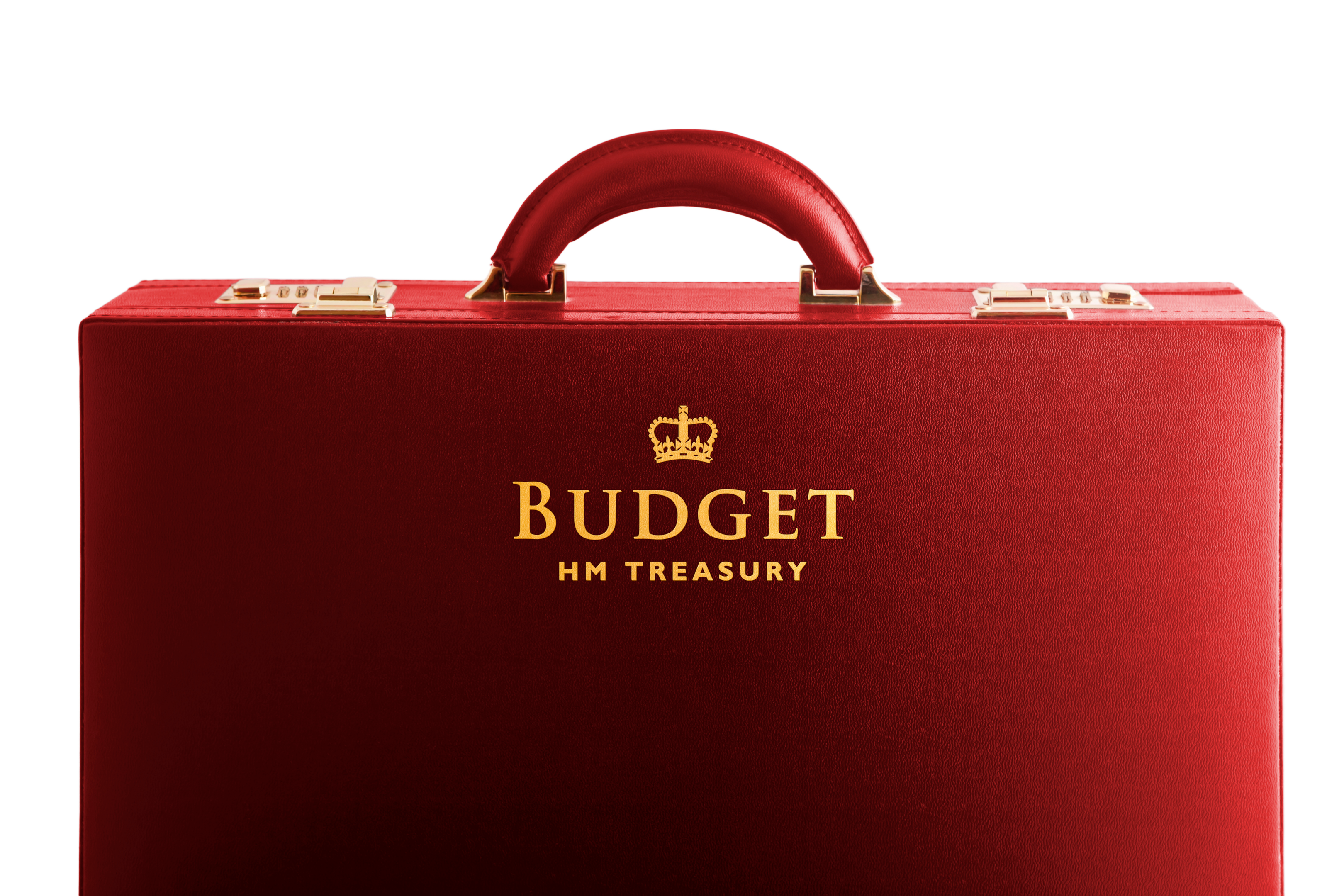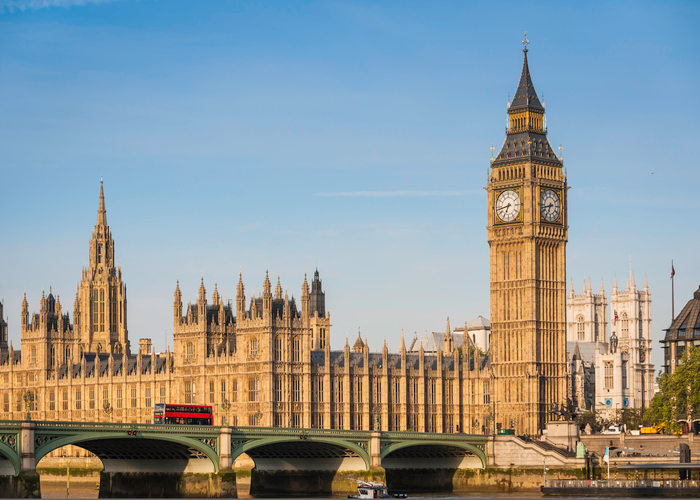Home / Latest News And Updates / Spring Budget 2024: 10 Key Takeaway Points for Accountants
07 Mar 2024
In what will be the final Spring Budget before the next general election, the Chancellor was keen to emphasise the economic policies and successes of the Conservative government.
Although the UK is currently experiencing a technical recession, he referred positively to the economic growth seen over the last few years and the expectation that the UK economy will continue to grow in 2024 and beyond. He also stressed the importance of the tax cuts that have been made for working families.
Here, we review the top 10 key takeaways for accountants. Discover how 20:20 Innovation can help. If you would like more information about membership why not book a free 30-minute demo with our team today.
In last year's autumn statement, employee's national insurance was cut by 2 percentage points and this went into effect for employees from 6 January 2024.
The Spring Budget has made a further cut of 2 percentage points, so that the rate for employees will be 8% from 6 April 2024.
Self-employed businesses will also benefit from the tax cut. Based on the autumn statement, we were already expecting the Class 4 rate to drop from the current 9% to 8% from 6 April, however the Spring Budget has extended the cut further. The rate will now be 6% from 6 April.
Class 2 national insurance now looks to be a thing of the past. The requirement to pay it is already removed from 6 April, and the government has now announced that it will consult on how to abolish class 2 altogether.
The bad news for employers though is that there is no change to the rate of employer's national insurance. This remains at 13.8% for 2024/25.

Interestingly, the Chancellor, Jeremy Hunt, highlighted in his speech the unfairness that exists between earnings from work which suffer income tax and national insurance, compared with other income streams that only suffer income tax.
He explained his desire to continue rewarding work and reduce the tax burden on workers and stating his intention of continuing to cut national insurance as and when the economy allows for it.
This does leave some interesting questions about whether income tax and tax rates may change in the future to offset this.

The High Income Child Benefit Charge (HICBC) has attracted a lot of criticism since its introduction because of the way it penalises couples that have a single high earner.
Currently, a couple where the two parents both earn £49,000 each are unaffected by the HICBC. However, another couple where one parent earns £60,000 while the other parent doesn't work lose their entire child benefit amount.
To reduce this unfairness, the Spring Budget 2024 increased the 'high-income' threshold from £50,000 to £60,000.
Not only has the starting threshold increased, but also the effect of HICBC has been slowed down. From 6 April 2024, the HICBC will be calculated at 1% of the child benefit received for every £200 of income above the threshold.
This has halved the rate at which HICBC wipes out the child benefit received and means that a taxpayer will now be able to earn £80,000 before they get no advantage from child benefit.
The Chancellor, Jeremy Hunt, also announced plans to change the HICBC so that it applies on household rather than individual income. This is expected to happen by April 2026.

Non domiciled tax status has been a quirk of the UK tax system (and the bane of accountancy and tax students!) for many years. In short, it helps foreign nationals who are resident in the UK avoid paying income tax on income that arises outside the UK.
The Chancellor announced in the Spring Budget that the non-domiciled tax regime is to be abolished so that 'non dom' tax status will become a thing of the past. It will be replaced with a new simpler residence-based regime. This is planned to take effect from 6 April 2025.
Under the new residence-based regime, individuals newly arriving in the UK from April 2025 will not have to pay tax on their foreign income and gains for the first four years that they live here.
The government has also announced its intention to move to a residence-based scheme for inheritance tax.

Furnished holiday lettings have enjoyed some useful tax advantages for many years. Being able to be treated as a trade rather than as a rental property has meant more generous deductions against income and there is a significant advantage in property capital gains tax when selling a furnished holiday let.
The Spring Budget announced that the furnished holiday letting regime is to be abolished from 6 April 2025.
This means that holiday let profits will be taxed in the same way as other rental property profits. The possibility of Business Asset Disposal Relief, and a potentially low 10% capital gains tax rate, will also be gone. This is likely to disappoint clients.
The government has warned that anti-forestalling legislation will be introduced to prevent landlords using unconditional contracts to obtain a tax advantage by agreeing to sell before 6 April 2025 and not completing the sale until some time afterwards.
If you are aware that a client is planning to sell their holiday let it may be worth encouraging them to think about doing so well before 6 April 2025 so that they maximise their relief.
As an aside, in the list of MPs lobbying for this change that the Chancellor mentioned in his speech, a number were from Cornwall, an area where housing availability for locals is particularly limited.
The changes to the furnished holiday letting regime may therefore also create a shift in owners looking to rent properties on a longer-term basis rather than have the weekly hassle of dealing with holidaymaker changeovers.

The Chancellor announced that from 6 April 2024, the higher rate of capital gains tax for residential property gains will be reduced from 28% to 24%.
There will be no change to the lower rate of 18% for any gains that come within someone's basic rate band.
It is thought that by cutting the rate, more owners of second homes and buy-to-let properties will have incentive to sell these, and create availability of homes for those that want to get on the property ladder, or move home.

Currently, there is a stamp duty land tax relief available when buying two or more residential properties. Multiple Dwellings Relief (MDR) allows for the rate of tax to be calculated based on the average value of the properties purchased rather than the aggregate value.
The original intention for MDR was to promote investment in residential property and increase the amount of private rented houses available. An external review has concluded that the relief has not really helped.
Therefore, with effect from 1 June 2024, the governent is abolishing MDR.
Provided the contracts are exchanged before 6 March 2024, and there's no change in the contracts afterwards, then MDR can apply to the purchase regardless of whether the purchase completes before or after 1 June.
Obviously, MDR can also apply to any purchases that complete before 1 June 2024.

With effect from 1 April 2024, the VAT registration threshold has been increased from £85,000 to £90,000.
The deregistration threshold has also been increased from £83,000 to £88,000.
The current thresholds have been in place since 2017, so to say that an uplift was overdue is an understatement! However, considering what inflation has been doing since 2017, an increase of just £5,000 does seem a little stingy.
Still, the uplift provides some slack for businesses approaching the registration threshold.

Chancellor, Jeremy Hunt, was keen to stress government support of British businesses. In order to boost investment in the UK stock market a new UK ISA will be introduced.
This ISA will have its own allowance of £5,000 a year, and this will be in addition to the regular ISA limits.
This measure was announced as part of the Spring Budget, but it is not included in the Spring Finance Bill 2024. The government says that it will consult on the details of this new ISA at a later date.
A small paragraph in the Budget documentation revealed that the government has published a consultation on raising standards in the tax advice market.
This consultation is looking at both how to strengthen the regulatory framework in the tax advice market, and whether to require that tax advisers register with HMRC before they can interact with HMRC on a client's behalf.
The consultation is open until 29 May 2024 and comments are invited from tax practitioners and anyone who may be affected.

Lastly and by no means least, the Spring Budget made no change to the personal allowance amount or to income tax rates and thresholds, so the 2023/24 income tax rates and thresholds will apply to 2024/25.
This also means no reprieve for the many limited company owners for whom the dividend allowance will drop to £500 in 2024/25.
Companies see no change either in the main rate of corporation tax of 25% or the small profits rate of 19%, or their related thresholds.
This keeps things straightforward with no new figures to remember. However, in view of the high inflation and increases to wages, this lack of change represents an effective increase in tax collected by the government.
This fiscal drag will bring more people into tax or push people into higher rates of tax. The national insurance cuts do help with this, but nonetheless the tax burden on many in real terms will be higher this coming tax year.

Whether the Spring Budget will help the current government and Prime Minister win the votes they need in the next General Election is unknown. However, we can say that the UK tax system will see some changes with the abolition of some long-standing reliefs.
Despite the tax cuts, many will be sensitive to any changes to their tax bill too. That means there will continue to be a demand for good quality and proactive tax advice to help those looking to optimally manage their tax affairs.
If you would like more information about joining 20:20 Innovation, why not book a free 30-minute demo with our team today or call us on +44 (0) 121 314 2020.

20 Feb 2024
Explore this 20:20 Innovation article on the impact of potential HICBC changes in the latest Budget. This incl...

07 Feb 2024
This article looks at the prospect of up to three Finance Bill announcements in 2024 and what that might mean ...

09 Jan 2024
HM Treasury has set a Spring Budget date of 6 March 2024 - one of many key fiscal dates in the early part of t...